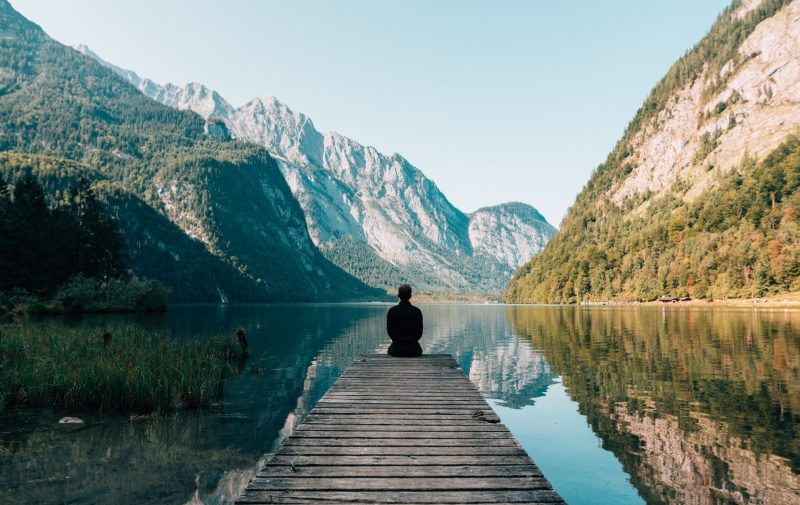I woke up at around 6:30. Staring at the blank ceiling, I came to the realization that I did not have to dress in a hurry, grab an energy bar and rush to class. Forty-five free minutes in the morning was unimaginable; both my mind and my body were confused. Hunger propelled me to the kitchen, and there awaited my stocked fridge. I made a cheesy omelet and went to sit by the window. Everything was quiet. I could not go outside, but the scent of grass, breeze and slanted sun-ray all came to me. I had forgotten that “morning” — even those on weekdays — has such a poetic, soothing connotation.
The first day of shelter-in-place was three months ago. Social gatherings canceled and in-person interaction reduced, this minimalist approach I’ve since adopted is the antithesis of the post-industrial world and the fast-pace lifestyle to which I have become accustomed. Without much thought and with no time to plan or prepare, I allowed my own behaviors to be molded by the immediate circumstances. Why not cook a nice breakfast and enjoy it when there happens to be time and assorted groceries? Why not call a friend when you have exhausted the content updates of all applications and her smiling profile picture hits you from the center of your screen? Why not talk for a few more minutes since this is the first time you actually reached her instead of being directed to “please leave a message?”
I have been told that academic and professional excellence is what is required to succeed in our society, and I have acted accordingly. I have worked hard to have the shiniest resumes and transcripts. If I can run, I don’t settle for walking; if I can be better, I don’t settle for being good. At the end of the day, I feel exhausted but proudly claim to be fulfilled, because for better or for worse, my beliefs and actions thus remain coherent. What about during the quarantine? Am I wasting my time when I am spending more of it than ever before cooking, gardening, calling old friends and lounging around with my family? Am I eschewing practices I used to find meaningful? Even working feels less stressful right now, thanks to the pass/fail grading system and extended deadlines. Although I feel less stressed out, I do not feel right.
Social psychology tells us that the discrepancy between our beliefs and behaviors creates dissonance, and that due to the natural inclination for humans to experience and see oneself as coherent and rational, we seek to reduce the dissonance by aligning beliefs, values, and attitudes with behaviors. Immediately after taking certain actions that make us feel uneasy, we seek to rationalize. I’ve seen this dissonance theory in my own life — situation-molded behaviors started to change my beliefs, and I let them.
I’ve begun to remind myself of the importance of introspection and self-care, regularly checking in with my mind and body and doing whatever necessary to make them happy. I’ve told myself to appreciate the value of personal relationships and communal support. If everything else — position, promotion, grades — is so easy to lose, at least I have all my people at the end of the day. The more I believe in the importance of self-care and out-care, the more I practice them, which fosters greater harmony between my beliefs and actions. Right now, I remember to zoom out of the “zooms” every now and then to take a good stretch or just close my eyes and let my mind wander. My partner and I sit down, talk through and resolve every big or small argument, and we end up growing closer and closer. Every night before bed, I call my grandparents. The last time I heard their voices for more than three consecutive days was the summer of the fifth grade, the last summer when I went to live with them.
Physical isolation has only made our mental and emotional connections more salient. Yet most importantly, I feel I can finally slow down. In the real world, capitalist attitudes tell us that society functions in scarcity, so all of us have to run in order to catch the train of prosperity. Each one of us has no choice but to follow the pace of life that has already been set in motion, seeking to obtain as many resources as fast as possible. This severe competition exists between everyone, yet no individual is held accountable, and only an external force can alter this inefficient equilibrium. In 2020, the force came in the form of an order to cancel all “non-essential” social activities and to “shelter in place.” For some industries and professionals, the pandemic is indeed a race — one between life and death and against the coronavirus.
It is my least intention to beautify the crisis of death, unemployment, racism and violence … but I want to emphasize that humanity, at the cost of lives, should and must be learning lessons. The mentality with which we walk into a situation has a powerful impact on our action and reaction. Confronting a pandemic, we have every right to grieve, anguish and despair — but if we can also expect some “realization,” we will be mentally prepared to acknowledge many latent societal problems and weaknesses that have been exposed by the disease. At the very least, each one of us can spend what available time and energy we have taking care of ourselves and our loved ones. Ultimately, even when every aspect of society seems in retreat, the little drops of relief and happiness that you and I generate should be recognized as humanity’s advancement.
Contact Shirley Zhao at sxzhao ‘at’ stanford.edu.
